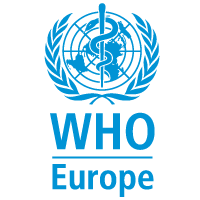
As the ongoing COVID-19 pandemic has proven on a global scale, laboratories are central to any well functioning health system. Acting like a central nervous system, they help to detect and control outbreaks of diseases by identifying cases and sharing results. Given their crucial role in the health system, they need strong leadership.
To train the next generation of laboratory leaders, the Global Laboratory Leadership Programme (GLLP) was established by WHO and a range of partners, including the Association of Public Health Laboratories (APHL), the European Centre for Disease Prevention and Control (ECDC), the Food and Agriculture Organization of the United Nations (FAO), the United States Centers for Disease Control and Prevention (CDC), and the World Organisation for Animal Health (OIE).
The GLLP ensures that participants have training in the core competencies outlined in the Laboratory Leadership Competency Framework:
- the laboratory system
- leadership
- management
- communication
- the quality management system
- biosafety and biosecurity
- disease surveillance and outbreak investigation
- emergency preparedness, response and recovery
- research.
What have laboratories done for us?
Despite their lifesaving role, laboratories are often an unseen element of health systems. Yet the importance of laboratory expertise has been felt keenly in the response to COVID-19, during the initial days and weeks of the pandemic but also throughout its trajectory.
As countries rushed to understand the spread of SARS-CoV-2, WHO/Europe and partners such as the ECDC established a roster of 6 international laboratories to provide testing support at the country level. Mobile laboratories have also been deployed during localized outbreaks, for example, to help trace the spread of COVID-19 in a refugee camp in Lesbos, Greece.
But even in non-emergency situations, laboratories provide surveillance of diseases. They confirm outbreaks of vaccine-preventable diseases, track mutations in the influenza virus, and help to develop vaccines that can protect vulnerable populations from severe disease and thereby reduce the burden on health systems.
Given the global nature of public health threats, laboratory leaders need to be well trained in best practices and the latest research.
Training the next generation
The GLLP recently established the first training of its kind in central Asia. Laboratory leaders from the human and animal health sectors came together in Kazakhstan to gain new skills that they could take back to their workplaces.
Aknur Mutalieva, a doctor and virologist from Almaty, participated in the training. She noted, “Thanks to the GLLP, I got the opportunity to improve my skills and strengthen my knowledge of the quality management system (QMS) and biosafety. I will use this knowledge for the development of QMS in my laboratory. The GLLP will directly influence the development and improvement of the laboratory services in our country. After all, each head of a laboratory in the GLLP improves their knowledge and will use it to develop and strengthen their laboratory.”
GLLP facilitator Elmira Utegenova explained how the programme has improved her mentorship and communication skills: “For me personally, it was a kind of challenge to myself. Can I be a mentor? Will my experience be useful to others? Will I be able to learn on my own during the training? Will I be able to use my time properly without sacrificing my primary work? We worked in a team with other facilitators and this also gave me some experience in communication skills with my colleagues. In terms of work, participation in the GLLP is priceless.”
The first phase of the GLLP in Kazakhstan has now been successfully completed, and planning for the second phase is well underway.
European Programme of Work
Detection of and response to health emergencies have been identified as a key priority area of the European Programme of Work 2020–2025 – “United Action for Better Health in Europe”. Investing in strong, resilient and inclusive national health systems, as well as operationalizing the concept of One Health at all levels, are also key recommendations of the Pan-European Commission on Health and Sustainable Development.
By building capacity and leadership in laboratories across the WHO European Region, the GLLP is playing a crucial role in preparing for future health emergencies.

